Tagged: The importance of stakeholders
-
CreatorTopic
-
09/21/2014 at 6:08 pm #1723
 ErikanMember
ErikanMember1) In your own words, describe why stakeholders are an important part of the research process.
2) To what extent does the research team you work with have an understanding of the value of stakeholder engagement? Explain your answer.
-
CreatorTopic
-
AuthorReplies
-
-
12/06/2014 at 10:36 am #2507
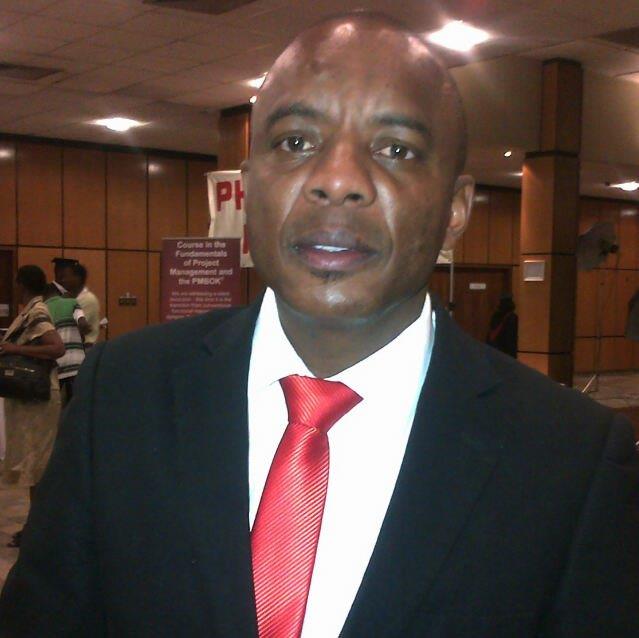 John MdluliMember
John MdluliMemberDear Laura Potter
I strongly agree with you that there is a shift in focus between recruiting high risk population and low risk population. The biggest challenge is how does one distinguish between a low risk and high risk behaviour. Many people consider Christians population as a low risk population due to their emphasize on “no sex before marriage”. The issue here is before people took a decision not to engage in sexual activities, how did they behave in the past? Secondly, it is even worse when people do not know their HIV status. I strongly agree with you, we need to strike a balance between these two concepts
-
10/02/2014 at 11:01 am #1893
Cathy Slack
MemberAnd also to ensure that stakeholders clarify their interests – occasional hard cases might be because of vested interests which is a problem that building literacy might not ncessarily solve, as important as it is….!
-
10/02/2014 at 7:37 am #1891
 Marie MicheleMember
Marie MicheleMemberDear Jauhara, I just remember that I have responded you through my email(which had bounced) for clarification about what I had said about our community which is naïve about research, I was focusing especially on the period when we started doing research in our country that had only one research which was doing a small study on HIV vaccine, which was new as well.
Yes, it was not easy for every one including myself to be honest. That why we had to seat down to think, and plan. That why we decided to collaborate closely with every one, who would give us assistance, like Global Compaign for microbicice for technical issue, and IPM(International Partnership for Microbicide) who did a good job to help us in building our community stakeholders from all levels, and they was also our sponsors for microbicide studies done in Rwanda.
But yes, even though a lot of effort had made to facilitate research to be done efficiently, we still have to do a lot in term of education and training community. Our research team now know the importance of community stakeholders of course after experiences faced and they are supportive. Another thing I would add on, is that communication and trust is a key in good collaboration between research team and community stakeholders. That why I consider our self as ambassadors. Let fight to be qualified as a good ambassadors then. let follow GPP.
Sorry, this information are kind of repetition, but I wanted to Clarify that to Jauhara that our Research team is fine with stakeholders.
All the best to you all.
-
10/01/2014 at 4:40 am #1888
Mathias Wambuzi
MemberHi Anne,
I have just been reading through your contribution and I can not wait to pick out this “constructing relationships with stakeholders”. To me this is paramount if we are to strengthen this in research. It is important for us to reflect and see the methodologies we employ to construct. we should look at this as an investment. We have seen ourselves engaging our stakeholders for only the life of a trial!! Michele’s example teaches us to widen our stakeholders scope to a global landscape. The site specific trials should be seen as a contribution to the global search not stand alone.
I liked Michele’s contribution!
-
09/30/2014 at 2:59 pm #1886
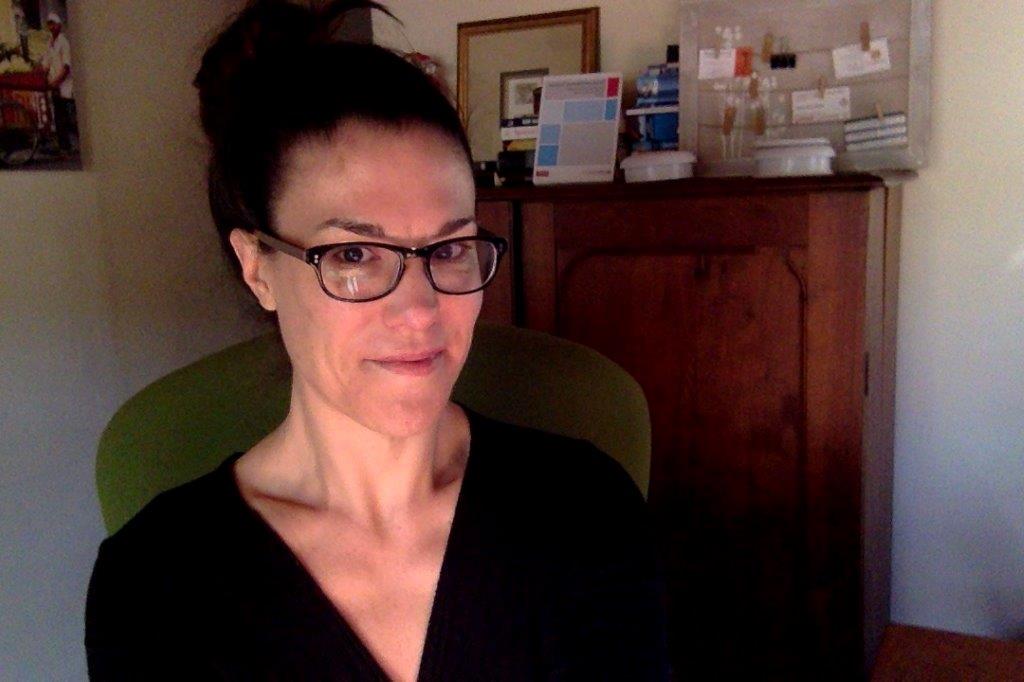 AnneMember
AnneMemberHi Agnes, Mare Michele and others…
I agree, it is very interesting to think about how we have conceived of stakeholders in the past, in comparison to how GPP describes them, and to challenge ourselves to think much more broadly…now we can consider groups or individuals who are affected, support, OR even may hinder the research at the local, regional, national and global levels. GPP also gives us a way to acknowledge the diversity of stakeholders and ensure that dominant groups are the not the only voices heard.
In Lesson 2, we learn more about the GPP guiding principles– which almost act as the philosophical foundation for GPP and stakeholder relationships. These principles do not prescribe how to specifically engage your stakeholders but they may help to you to think about your overall approaches and –as Marie Michele suggests–perhaps better self -evaluate about how we are responding to stakeholders and constructing our relationships.
-
09/30/2014 at 1:16 pm #1885
 Marie MicheleMember
Marie MicheleMemberDear Colleagues, sorry I missed your very important discussions, I was sick and was not able to consult emails; but really this course is very interesting, what is being shared here is the reality of things we face. I remember during Caprisa results, even though we were not doing study on Caprisa, we were doing phase I and II on microbicide study. The population had the news on international radios, and all over sudern in the morning we were getting calls of people saying that those kind of research we are doing on people is dangerous, some participants and their families were not happy, already in the afternoon same days rumors were extending, national media started calling as well. It was not easy to every one, that was also our first experience to deal with such issue. Now the importance of stakeholders has been realized that time. we called our Mobilizers in the communities, our CAG members, people from Ministry of Health, Local authorities, some former participants ( we were lucky we had a nurse and some educated participants) they all joined us to respond to the questions of population, we had different sessions on public and private media to explain to the population. It was hard moment, but with commitment of stakeholders who are know in different communities, the rumors greatly decreased very quickly. But to be honest, without those stakeholders help, research was in problems in term of recruitment and retention of participants. for me, I value stakeholders a lot, and I must confuse myself, I am not helping them efficiently in terms of giving them knowledge about research. except our mobilizers and our CAG, they use to have training every 2 years on GCP and ethics , communication and updates on clinical research in general and microbicide, the rest of our stakeholders we only give them a presentation on a new protocol when we have a new studies. But I agree with my colleagues, involving all stakeholders is a key of research success. And our task became easier. The good thing of this module is that, sometimes you think that you did your best to engage your stakeholders, but reading this module, it shows you what you should do for a better results. Our stakeholders, our selves, need more knowledge and skills, which GPP course is being helpful, is helping in self evaluation.
-
09/29/2014 at 7:26 pm #1882
Agnes Nondo
MemberI agree with leader Ngoyi, that it is easy to curb rumors when stakeholders are involved. Our CAB members had gone in the filed to help the staff track a participant who had missed several visits, when she saw them she shouted that( these are the satanists I have been talking about today they come to finish me meaning to kill her) the CAB and the Staff were almost lynched they were saved by the police officers, I was contacted and went to the police where the father to the participant spat in our CAB members face in my presence and said he was going to deal with all of us in the same way. We called on Community liaison and explained and wrote police statements, luck enough the wife to the police office in charge was a participant as well and the police officer in charge explained to the family ans so all were release.
-
09/29/2014 at 7:10 pm #1881
Agnes Nondo
MemberIn your own words, describe why stakeholders are an important part of the research process.
Hello I believe stakeholders are an important part of research because we get research participants from the stakeholder, we collaborate wih the stakeholders we get advise from stakeholders they also provide checks and balances to the research process.
2) To what extent does the research team you work with have an understanding of the value of stakeholder engagement? Explain your answer
From the little knowledge that I have acquired from module one, our research team has not worked with the stakeholders as partners in the whole process of research. I say so because we have only involved community stakeholders we have not really involved broader stakeholders. we have to some extent involved national stakeholders just because the regulatory bodies have to review the protocols but we have not sat to really create that partnership we have instead regarded them as police of research. I should appreciate that this course has been timely to me personally and to the organisation as a whole as my perception of who a stakeholder is and the role that a stakeholder should play has changed. Agnes
-
09/29/2014 at 5:49 pm #1879
 RonaMember
RonaMemberHi all,
Like Anne and Mathias, I’m also interested in finding out how many trainings are conducted at the various sites and who participates. Is it just the staff member responsible for stakeholder engagement or are others at the research site and/or others in the community included, and of course who conducts such trainings and what do they consist of?
I think ongoing training is challenging, though necessary to ensure that the awareness and familiarity goes beyond one single individual and is truly incorporated into the culture of the organization.
-
09/29/2014 at 2:41 pm #1875
 RonaMember
RonaMember1) Stakeholders are critical to the development and conduct of research on a variety of levels. Those stakeholders who are most affected by the research and/or most representative of potential participants play an important role in helping to shape study design and ensure that a study would be acceptable and feasible in a given community. As was stated above, without their trust, support and acceptance, a study will not succeed. Other stakeholders in the broader definition of the term are equally important in making sure there is general support, whether for funding, regulatory approval, ongoing ethical review etc. While the various types of stakeholders have different effects on the research porcess, they are all vitally important
2) Each of the NIH-funded HV/AIDS prevention research networks understand the importance of stakeholder engagement. They all have established mechanisms for engagement – CABS or similar groups are the primary means of community engagement but other forms be they forums or consultations are also used, particularly in preparation for specific research studies. MTN 017 was the perfect example. Of course, it varies to some degree by network, by site, and of course, by study. The Division of AIDS (where I’m located) is very supportive of stakeholder engagement and works with stakeholders in its own way on a regular basis.
-
09/29/2014 at 11:36 am #1872
Mathias Wambuzi
MemberLeader & team ,
How many engagement trainings have your sites conducted that combined both internal and external stakeholders?
-
09/29/2014 at 11:28 am #1870
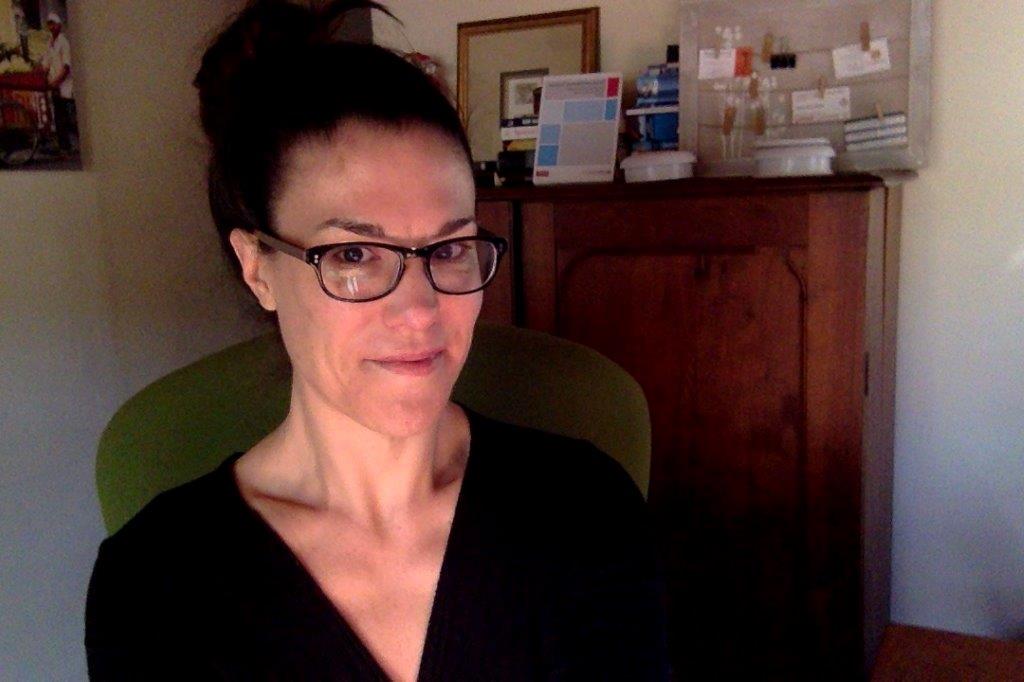 AnneMember
AnneMemberYes, Leader… I remember my time as a Site Coordinator. You may have the power to change your site’s policies or SOPs with the stroke of a pen. But changing an entrenched culture is a tough task. All research team members must have some understanding of why GPP is needed, so regular staff training is a great start.
How often do you train staff on GPP? Do you also involve other stakeholders–like CABs or community organizations– in the training?
I think creating shared value and real alignment around GPP is a much longer process. And it’s about accountability. I am looking forward to the day when trial sponsors and other stakeholders, like RAs, IECs, require that the GPP Guidelines be followed when a trial is conducted!
-
09/29/2014 at 11:02 am #1869
 Leader Kanyiki NgooyiMember
Leader Kanyiki NgooyiMemberYeah, we need to be sensitive in the planning and implementation of our research projects, and therefore need to involve stakeholders to get their advise and inputs.
Engaging stakeholders is way of showing them respect throughout the process, it encourages acceptability and support of programmes from their sides. they become knowledgeable and well place to own and defend research programmes.
Rumours will be minimized when stakeholders know what is going on. recruitment and retention/adherence will be improved.
Well often other RC staff members who are not directly involved in community engagment fail to understand its importance and impact. at our RC I ensure that now and again I do a presentation in staff meetings and special trainings to make staff understand GPPand its place in research.
Thx, Leader
-
09/26/2014 at 8:52 am #1823
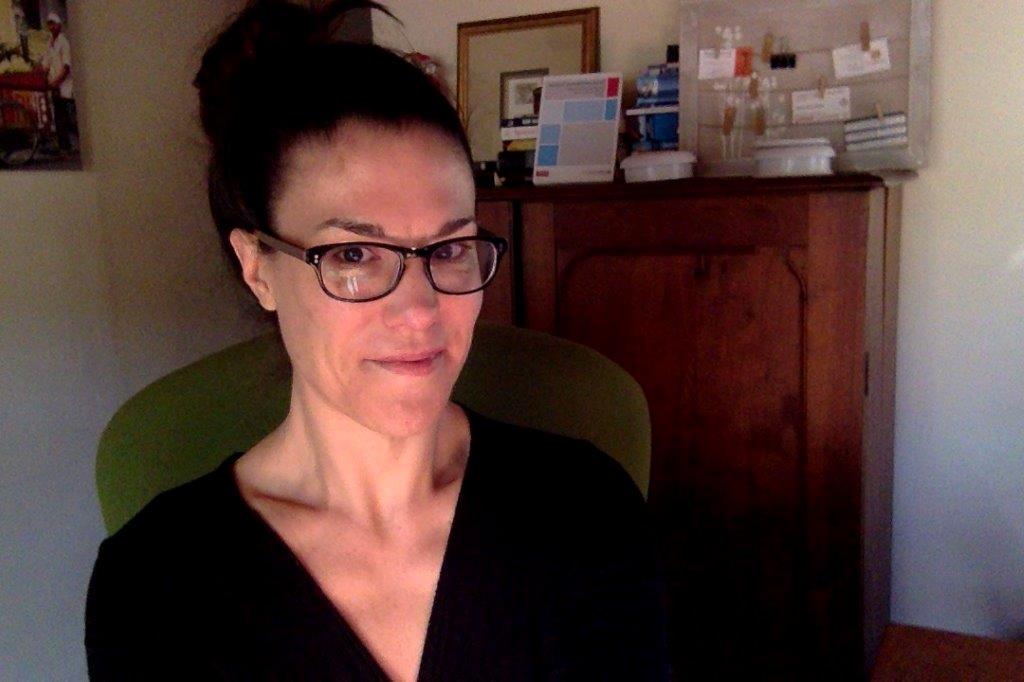 AnneMember
AnneMemberHi Jolly Jau!
I agree, it is about investment and setting expectations about the partnership– on both sides. And this process is ongoing. One trial can take many years, so stakeholder identification and engagement is ongoing and requires sustained commitment including (as you suggest) adequate resources from researchers to build literacy and enhance the capacity of stakeholders to meaningfully participate in decision making.
-
09/26/2014 at 5:23 am #1821
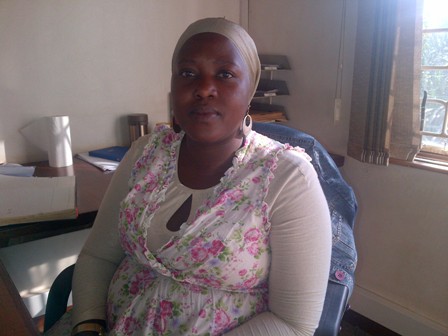 Jauhara NanyondoMember
Jauhara NanyondoMemberDear Teamates,
While we all appreciate the importance of stakeholder engagement, researchers should appreciate that efforts and resources are require to build a research literacy base among stakeholders so that they understand the work the researchers are doing and eventually provide meaning full feedback.
-
09/25/2014 at 10:07 am #1797
Patchara
Member1) In your own words, describe why stakeholders are an important part of the research process.
Most of researchers do not know well in the area of research such as life style, culture etc. of the community. Research conducting may not smooth well. Community stakeholders know more contexts about their community and they can help researchers to conduct their study for all cycle of study. The example of issues we can get from stakeholders are how to recruit the hard to reach population, what appropriate manner from researcher to do to trial participants, what trial participants really need from researcher, how to manage the rumor etc. Community stakeholders are able to help researcher for all cycle.
2) To what extent does the research team you work with have an understanding of the value of stakeholder engagement? Explain your answer.
Our institute concerns about value of stakeholder engagement very much. We emphasise the importance of stakeholders. We try to follow GPP guideline. We have engagement plan for each study we conduct. We follow topic areas in GPP as well even though we cannot do for all 16 topic areas. We have difference level of researcher to deal with difference level of stakeholders.
We emphasize a lot about value of community advisory mechanism. We consult CAB for all level of study. We have meeting with community every month to update information and consult them about problem we confront with. We join in community activity to maintain good relationship with stakeholders. We educate stakeholder every year.
-
09/25/2014 at 7:00 am #1795
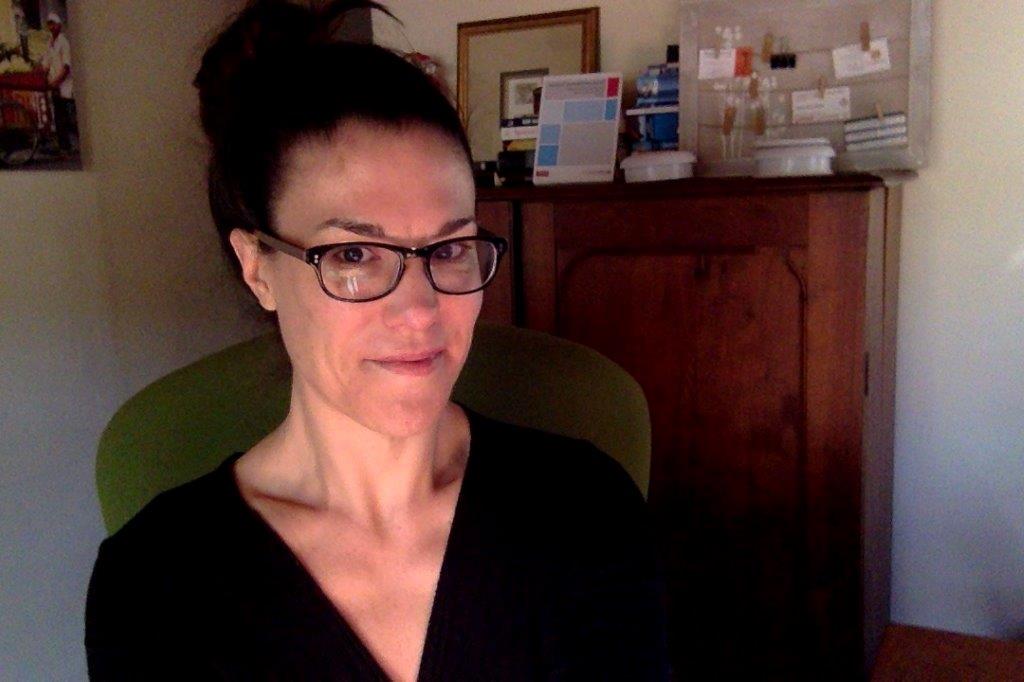 AnneMember
AnneMemberI think the second question is particularly interesting. In the real world, although the entire research team is typically aware of stakeholder engagement and related activities, not everyone may have ‘buy in’ or true understanding about its implications on research outcomes. If stakeholder engagement is to be truly integrated into and sustained in the operations of a trial site, the concept needs to be ‘owned’ by the entire team. So, how do you keep your stakeholder engagement program from becoming compartmentalized and not just the domain of your CLO?
-
09/25/2014 at 5:58 am #1794
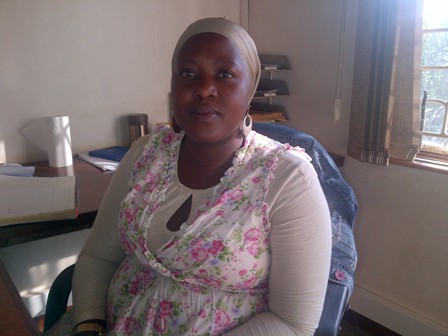 Jauhara NanyondoMember
Jauhara NanyondoMemberDear Marie, i appreciate the fact that your community is naive in the area of research, that the research team does not appreciate the importance of stakeholder engagement, but it is at this stage that the GPP practicability is at the highest play. The researchers themselves have to appreciate the value of stakeholder engagement and then the community its self should appreciate it. This requires alot of effort to have these two communities appreciate stakeholder engagement not forgetting the resources.
Actually the researchers need to first appreciate the stakeholder engagement, and its from there that you will have other stakeholders appreciate it.
To all of us lets plan ahead of the community in terms of crisis management in regards to research related issues, don’t wait for the rumor to start in community and then you seek to clarify and community is seeing you for the first time. That is wrong, the stakeholders will view you as some one at the defensive.
And the media!!!!
-
09/24/2014 at 7:26 pm #1790
 Laura PotterMember
Laura PotterMember1) Stakeholders are critical contributors to and facilitators of the research process in biomedical HIV prevention trials because they possess invaluable and unique insight into and vested interest in the people involved in the trial, the science itself and results of the trial, and the ethics of conducting the research for any given trial. Without their input, study protocols would lack the specificity needed to engage most appropriately and successfully with people who come into contact with the trial, whether through participation themselves, knowing other participants, or generally being affected by the running of the trial in their community, district, or country. Additionally, to prevent unethical research practices or culturally incompetent approaches to the research, stakeholders’ involvement in study design and ongoing feedback during and after the study ends is of great importance. Finally, without stakeholder buy-in, involvement and trust there would be no studies, as has been made abundantly clear in several proposed north African and southeast Asian trials in the past. Ultimately, therefore, it is in everyone’s best interests to engage stakeholders in all parts of the research process in order to inform and, in the end, accomplish the research goal: HIV prevention and, perhaps one day in the future, eradication.
2) Bridge HIV values stakeholder engagement very highly, drawing from multiple different stakeholder groups to inform our protocol development and recruitment strategies. Our Community Advisory Group, which consists of individual representatives from all walks of life and organizational or community backgrounds, meets monthly to receive updates on our study development and progress, voice concerns/needs/desires, and submit feedback about the study site’s work. The Community Programs team at Bridge HIV, of which I am a part, also meets weekly to discuss our own strategies of engaging stakeholders, especially as engagement pertains to recruitment for our studies, which is the main way our team interfaces with the community. We encourage and welcome discussion and conversation about relevant HIV prevention and vaccine research and news amongst our social media followers on our Facebook pages and Twitter accounts. We also look for opportunities for field engagement and recruitment so that we show the community-based organizations and individuals we are working for and with that we care about the events and work that they do and that we want to develop true partnerships rather than simply parasitize and benefit off of them for the purposes of recruiting and enrolling participants in our studies.
-
09/23/2014 at 1:38 pm #1769
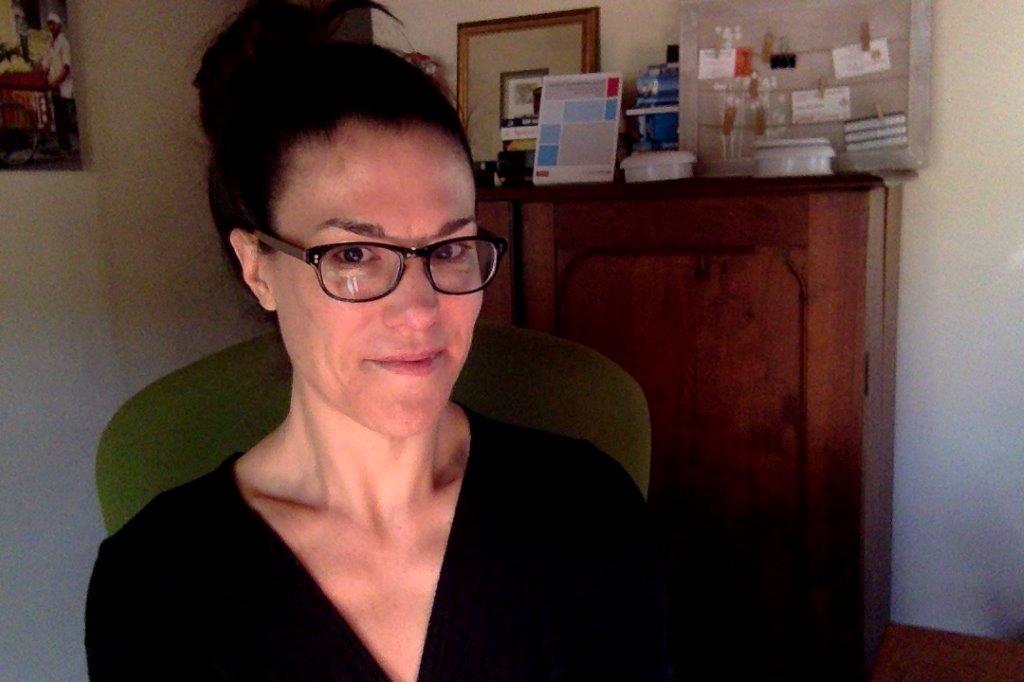 AnneMember
AnneMemberHi Mathias and all:
Yes, we are experiencing some technical glitches with the LMS, related to posting and access to Lesson 1. Thanks for your patience while we resolve the issues! Erikan will be sending out an announcement via the LMS when this is resolved.
Best,
Anne
-
09/23/2014 at 10:17 am #1766
Mathias Wambuzi
MemberJohn ,
I am able to see your lesson input but how did you make it. my uploading has failed. What could be the problem? My computer competence is minimal.Hahahaha
-
09/23/2014 at 6:41 am #1757
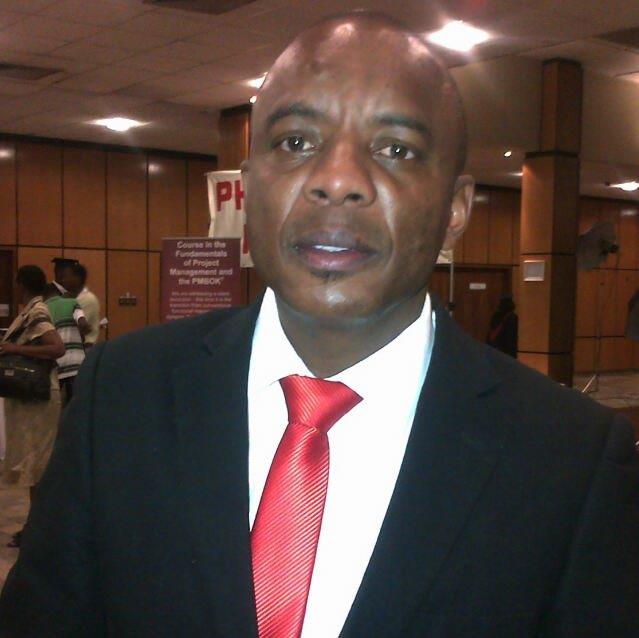 John MdluliMember
John MdluliMember1. Importance of Stakeholders in the research Process
Stakeholders are an important part of the research process because these are the individuals, policy makers, government institutions, groups or organizations who have a direct influence or impact on the research process. Stakeholders are either directly or indirectly influenced by the planning, conduct and research findings. For example if one day the HIV vaccine or treatment is discovered through a research process, this will change both National and International policies on HIV prevention and treatment. In South Africa this will have a direct impact on our National Strategic Plan (NSP) in terms of how this disease should be prevented and managed.
For a product to go through a licensure we need different stakeholders at different levels. Such Stakeholders will include Policy Makers, pharmaceutical companies and the broader community. Therefore I feel that stakeholders form an integral part of the research process.
2. Understanding of the value Community Engagement by the research team at our site
Fortunately our site participated in the FACTS 001 trial. Part of the requirement was that the site staff should be trained on GPP guidelines. The guidelines clearly indicate the role of Community Engagement in the planning, conduct and results dissemination of the trial findings. During the planning of FACTS 001, Formative research was conducted and the findings were shared with the site staff. The findings of the formative research highlighted the importance of understanding community dynamics, languages used and the HIV incidence and prevalence in the area. This in-turn advised on how we can recruit high risk participants for the study. The results of the formative research also advised us on how participants recruited and enrolled for this study can be retained.
Community Engagement initiatives such as Formative research helped to increase our site staff understanding of the role and importance of community engagement in the conduct of biomedical HIV prevention research
-
09/25/2014 at 11:03 pm #1820
 Laura PotterMember
Laura PotterMemberDear John Mdluli,
I love your point about how participation in the FACTS 001 trial gave your site the opportunity to engage with communities/individuals at high risk for HIV that were, per eligibility criteria, recruited for that particular trial. While this used to be true for us at Bridge HIV when we were one of the study sites that participated in efficacy PrEP trials in previous years, things have shifted now.
As such, one of the challenges that our community programs team at Bridge HIV has experienced lately is that all of our currently active studies are Phase I or II trials (for vaccines, experimental microbicides, etc.) that are looking to enroll participants at low risk for HIV, while most of our community partners are organizations that serve and are run by communities at higher risk for HIV or who have already seroconverted. This has created an interesting divide between our recruitment efforts and our community education and engagement efforts, and requires new strategizing on our parts on an ongoing basis for how to balance both efforts.
-
-
09/22/2014 at 9:00 am #1745
 Marie MicheleMember
Marie MicheleMember1)During research process, we also need to prepare to recruit potential participants in the research, who would meet inclusion criteria of the study with less cost and less time that would be spend to get eligible participants. once stakeholders are well identified, recruitment and retention of participants would be easier. To achieve this, we need to involve stake holders and it is important to identify the best stakeholders who is respected in the community, who will facilitate the researchers to get all regulatory approvals process etc. Stake holders are the people that community listen to, so they would help researchers to explain the research mission, objectives and strategies.
2) For the research team to understand the value of stakeholders, I would take an example of my own country, which is basically, many communities are still research naïve, we do not have many clinical research around, we are only 2 sites doing clinical research, it is understandable that, even some of our colleagues would not really understand the value of stakeholders, until they had been experiencing the issues such, rumors in the community, getting regulatory papers without any problem, helping in dealing with media if necessary, getting eligible participants without a lot of difficulties, etc. through the stakeholders collaboration and commitment of helping researchers to reach their objectives, the research team really acknowledge the value them.
-
10/17/2014 at 8:19 am #2072
Siriporn
MemberHi all:
While we all appreciate the importance of stakeholder engagement that refer to process through which trial funders, sponsors, and implementer build transparent, meaningful collaborative, and mutually beneficial relationship with interested or affected individuals, groups of individuals or organization with the ultimate goal of shaping research collectively.
Each of the HV/AIDS prevention research trial at The Thai red cross AIDS research centre (TRC-ARC) understands the importance of stakeholder engagement. They all have established mechanisms for engagement – CABS are the primary means of community engagement. The TRC-ARC uses various community advisory mechanisms for its community engagement plan in accordance with the Good Participatory Practice (GPP) guidelines. These mechanisms include the TRC-ARC CAB, community forums and workshops, individual stakeholder meetings, focus group discussions, and informal continuous dialogue with stakeholders. -
10/11/2014 at 4:28 am #1998
Siriporn
Member1.In your own words, describe why stakeholders are an important part of the research process.
Biomedical HIV prevention trial research is a usually a contentious issue with polarized views held, on the one hand, by those who represent researcher, sponsor (stakeholder) and, on the other hand those who represent of participant and community stakeholders. Thus it is obvious that research into HIV/AIDS human research for sustainability should engage with representatives from across these stakeholders. Also, stakeholders are either directly or indirectly influenced by the planning, conduct and research findings.
2.To what extent does the research team you work with have an understanding of the value of stakeholder engagement? Explain your answer.
Each of the HV/AIDS prevention research trial at The Thai red cross AIDS research centre (TRC-ARC) understands the importance of stakeholder engagement. They all have established mechanisms for engagement – CABS are the primary means of community engagement. The TRC-ARC uses various community advisory mechanisms for its community engagement plan in accordance with the Good Participatory Practice (GPP) guidelines. These mechanisms include the TRC-ARC CAB, community forums and workshops, individual stakeholder meetings, focus group discussions, and informal continuous dialogue with stakeholders. The TRC-ARC research team, in consultation with its CAB members, identifies relevant community stakeholders for each study at The Thai Red Cross Anonymous Clinic. The TRC-ARC CAB was established in 2006 as a mechanism to support community participation in the HIV trial. It was originally comprised of invited representatives from non-governmental organizations and communities actively involved in or affected by HIV during its early epidemic in Bangkok. These organizations include the AIDS Access Foundation, the Foundation for AIDS Rights (FAR), the Thai NGO Coalition on AIDS (TNCA), the Thai Network for People Living with HIV/AIDS (TNP+), the Thai AIDS Treatment Action Group (TTAG), 12D (a Harm Reduction NGO), Anjaree (a Lesbian NGO), We Understand Group (an NGO working with children and youth), Service Workers in Group (SWING, a male sex worker NGO), Empower Group (a female sex worker NGO), Wednesday’s Friends Club (a PLHIV peer educator group), Rainbow Sky Network (an MSM NGO), the Women’s Health Advocacy Foundation, the Thai Broadcast Journalists Association, and representatives from selected geographical communities
-
10/09/2014 at 1:51 pm #1976
Bernadette Kombo
Member<div class=”bbp-reply-content”>
Importance of Stakeholders in a research process
The success of a research is when at the end all the parties involved or rather all that are affected by the research are a contented lot with the outcome. To achieve this therefore it is only practical that the people who can impact on the research or the people affected by the research (be it directly or indirectly) are involved throughout that process. Stakeholders are therefore an integral part of a research process and will remain important if researchers are to make a meaningful contribution to the society.
Value of stakeholder engagement: my research team understanding
I would describe my team’s understanding of the value of stakeholder engagement as average. About five years ago our research site was attacked by the local community and was almost torched down because of misunderstanding by the community about the activities that the site carries out. Working with GMT population in research was interpreted as ‘breeding’ gay men and officiating gay marriages and this is what prompted the community to want to set ablaze the premises and all those in the premises. However, when the assessment was done it did emerge that the community was not involved in the research process and thus they did not understand ‘why do research with gay men’. this called for intensified community/stakeholder engagement efforts and in a recent ‘evaluation’ it is apparent that the community now understands what kind of research the site does and why engage GMT population in HIV research. From this experience therefore the research team is very aware about stakeholder engagement and why it is important though the different levels of stakeholders may not be as clear to everyone.</div>
-
This reply was modified 10 years, 2 months ago by
Bernadette Kombo.
-
This reply was modified 10 years, 2 months ago by
-
09/23/2014 at 10:10 am #1765
Mathias Wambuzi
MemberGPP LESSON 1 ASSIGNMENT.1.1 Recognizing and acknowledging the importance of stakeholders in the research process starts from identification/mapping of these individuals, groups, organizations that can have an influence and can be affected by the process. This alone creates a basis for appreciating the importance of stake holders.
Stakeholders have been discovered to be end-users for the products of the research process. It is important that experimental HIV prevention options are tested for safety and efficacy in populations that require these interventions most and are potential consumers should there be licensure. For instance, the importation of male condoms from China to Uganda was affected by the fact that the size could not match with the average size of a Ugandan. There was lack of stakeholder engagement before importation.
Stakeholders contribute to the research process unique expertise in form of critical knowledge, understanding of societal issues, cultures, language and local priorities that are essential for the process. This puts stakeholders at one side with the research the other end. Hence, the need to combine competencies.
Bio-medical HIV prevention research is participatory in nature! This therefore calls for involvement of stakeholders as equal members/partners in the process and helping them to understand the context in which the process occurs.
Taking a historical perspective, bio-medical research lacked respect for fundamental human rights.Todate; involving human subject requires taking them as stakeholders meaning that they are an integral part of the process. The vivid example here is the Prep trials in Cambodia and Cameroon. The lesson we draw from this example is that there was no partnership.
Bio-medical HIV prevention trials are conducted in a defined environment, the community in its wider context. The community owners are the stakeholders whose presence can affect or have influence on the entire process.
Recognizing that research teams is another set of stakeholders (internal) whose team role in the process is critical in ensuring scientific and ethical integrity of the process. This makes them an important part of research process.
Overall, acknowledging the different layers of stakeholders in the bio-medical prevention research process makes stakeholders an integral part of the process with different layers playing unique roles. The importance in the process is derived from the unique roles.
1.2 The research team in the wider context is composed of different key players who contribute to the process in many ways. The extent of value in stakeholder engagement is usually limited to the level of interface with inner layers of the stakeholders. These include; Trial participants, CAB and research community.
This interface with the above mentioned make the research team defines the stakeholders to mean the above category alone. However, a few members of the team are able to value stakeholder engagement beyond this layer to the global outer layer.The active involvement of the above mentioned stakeholders in the research process make the passive stakeholders less valuable to the research team.
Even with the few valued stakeholders the value is perceived in terms of their potential to provide needed samples NOT how much they can influence.
Against this background, this creates a gap in promotion Of Good Participatory Practices (GPP) where team effort and support in needed. The teacher must be taught to teach!
-
09/23/2014 at 3:02 am #1755
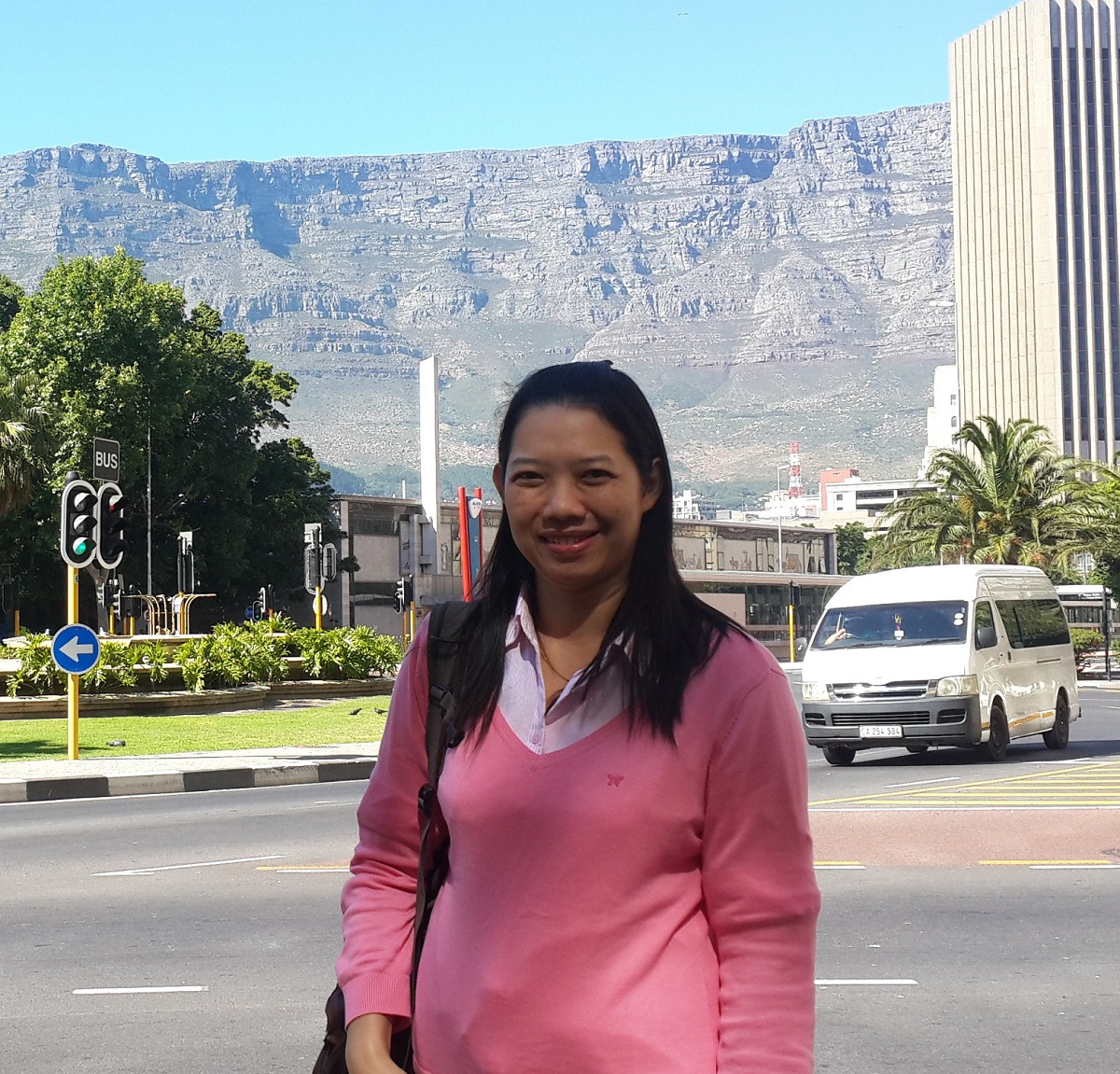 PongpunMember
PongpunMember1) Stakeholder is anybody who can affect or is affected by project. They are important and effect to success or unsuccessful in project. Stakeholder have power in community and someone is representative of that area. If we can identify who are stakeholder, we can access in area and known about community thinking. We can develop communication plan for community and we can develop management plan for study. Collaboration with stakeholder can analyze problem and resolve problem.
2) To understanding of the value of stakeholder engagement is important and we need to survey that who are stakeholder for this study. First thing, staff team need to brainstorm or have meeting for scope and clarify who are stakeholder. After that staff should have community engagement plan and have schedule meeting with stakeholder. Some media should be created for clearly understanding about study. If found rumors or wrong information about study, study team need to evaluate and urgent to resolve.
Pongpun -
09/22/2014 at 1:30 pm #1749
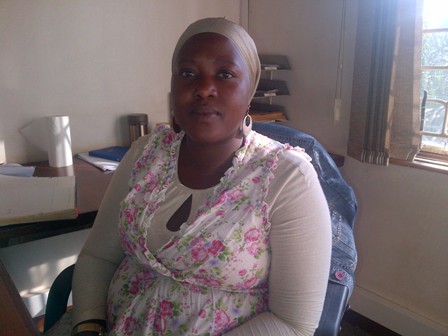 Jauhara NanyondoMember
Jauhara NanyondoMemberQn 1. The stakeholders in the research process are vary, from the grass root level to the global level but all are important in their capacities. They are directly affected by the research process, in these communities is where the study participants are recruited, all the effects of the research gets directly to these people. To have the research succeed, one needs these groups to buy in the idea of research yet to be conducted.When the outcome of the study is obtained, its these people that get the effect directly.Stakeholders may include in my country context, the potential study participants, communities where they live, leadership structures of the communities they live in, ministry of health, regulatory bodies, the funders of the studies, site staff etc.
The funders mobilize for resources the support the research to tale place and through that the world receives a public health intervention. The regulatory bodies are the authority eyes that look at what the scientists are doing so that they don’t carry out unethical processes to the volunteers in these studies.
Some stakeholders influence policies they are therefore important because they cause health change in society eg the ministry of health.So anything related to health must be made clear to them to advocate for it.QN2. To a high extent my team understands the value of stakeholder engagement. This is so because of the effort they in put in to have this achieved.
a)We have a well established section responsible for community engagement with fully responsible staff to foster that process.
b) The outreach office works closely with the researchers to build research literacy in the communities where we conduct research
c)They appreciate the fact that stakeholders at different levels are engaged and clarity to their questions, misunderstandings, and mis- conceptions are cleared to have a harmonized research community.
d)The organisation has annual budget that looks at engaging stakeholders
e) Community engagement plan that facilitates when, how and where to engage stakeholders of different levels.
f)Sessions are arranged to educate other research staff about the importance of the stakeholder engagement.
g) We occasionally engage media to update them on what we are doing.
-
-
AuthorReplies
- The forum ‘GPP Discussion Forum’ is closed to new topics and replies.


